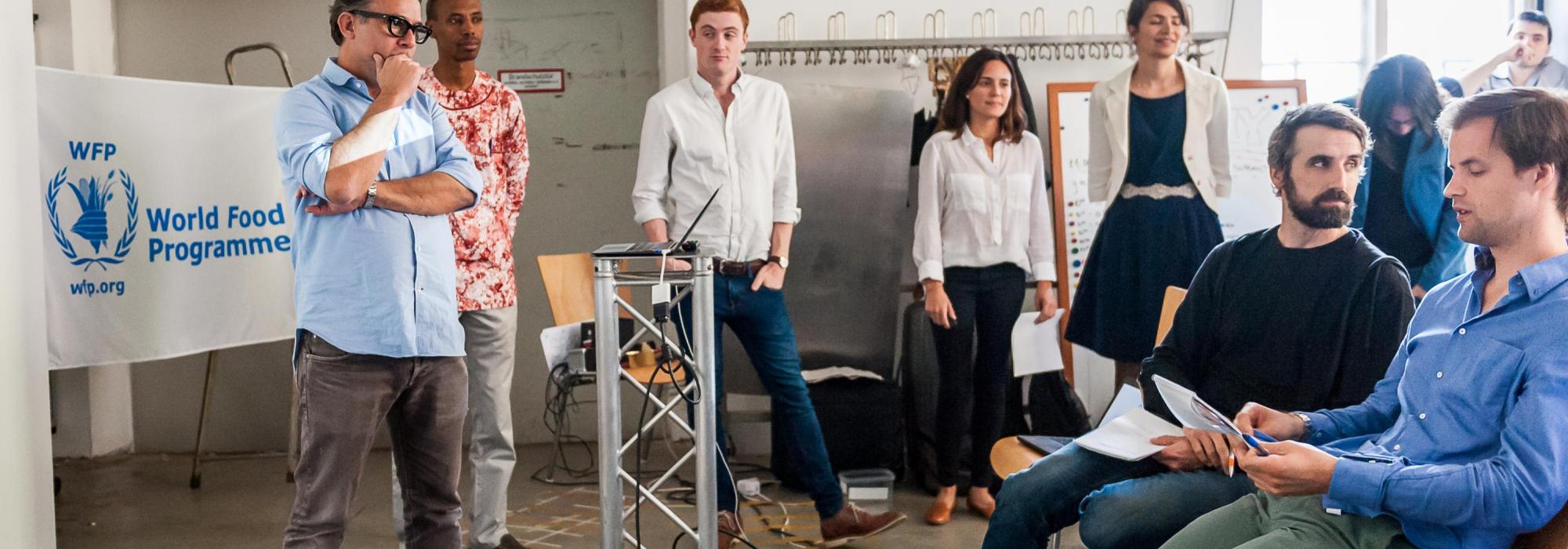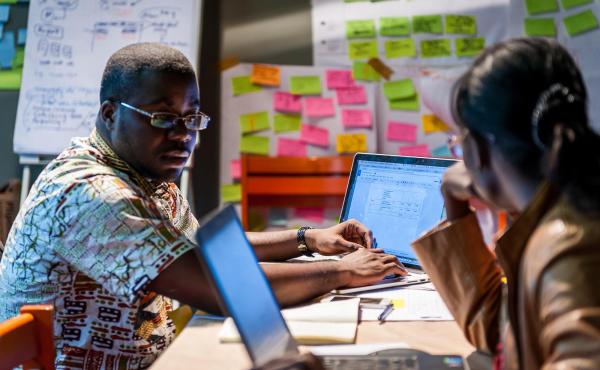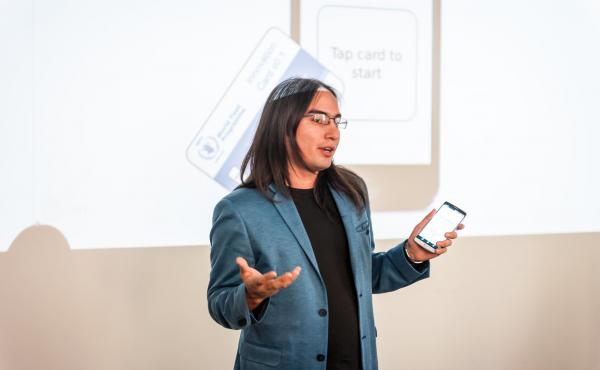Hydroponic Growing (Algeria)
In the Algerian Sahara Desert, semi-nomadic Sahrawi refugees are testing a low-tech solar-powered shipping container solution to grow green animal fodder to improve their livestock’s milk and meat production. Crops are grown in rapid 7 day cycles, with just one unit able to feed up to 35 animals a day. Refugees receive technical training, locally purchased crop seeds and ongoing support, to build local capacities.
Building Blocks (Pakistan)
In early 2017, WFP took the first steps of harnessing Blockchain technology, which offers unique opportunities for humanitarians to save millions of dollars and provide effective, efficient assistance to beneficiaries, especially when using cash-based transfers (CBT). An early stage blockchain project was piloted at field level in January 2017 in the Sindh province, in Pakistan.
ShareTheMeal (Global / based in Berlin)
ShareTheMeal is an award winning smartphone app that enables users to "share their meal" with hungry children. A donation of US$0.50 will help provide a child with vital nutrition for the day so he or she can stay healthy. Since the launch in 2015, around 750,000 users worldwide have provided more than 11 million meals to children in Malawi and to Syrian refugee children in Lebanon’s Bekaa Valley and Beirut, in Homs (Syria), Jordan and Lesotho. Currently, ShareTheMeal is fundraising for children affected by Boko Haram violence in Logone and Chari, in Cameroon.
Digital Livelihoods (Iraq)
In Iraq, WFP aims to give Iraqi displaced by conflict an opportunity to rebuild their lives through digital skills training and work opportunities. The project in Iraq builds upon WFP's ‘Tech for Food’ project which successfully piloted a training programme for more than 100 Syrian refugees and members of the local host community in Beirut, Lebanon. WFP is working to scale up the training programme across the region and secure life-changing work opportunities in partnership with major technology companies.
School Meals 2.0: Data for Impact (Malawi, Eqypt)
On average, WFP supports 20 million children with school meals worldwide. One of WFP's newest teams, made up of staff from Headquarters, Malawi and Egypt, seeks to deploy a real-time tracking and monitoring system to ensure that each child receives the food they need to learn and grow.
Sustainable School Meals (Malawi, Eqypt)
Our second school meals innovation team believe their 'School Gardens' concept can reduce dependence on traditional food procurement and provide a local, sustainable food supply for thousands of schools globally.
Beneficiaries’ Voices (Lebanon)
From Lebanon, the Beneficiaries' Voices team is developing an app whereby the 10 million people receiving WFP cash based transfers can share retail information, create open market conditions and have access to better quality food at a lower price.





